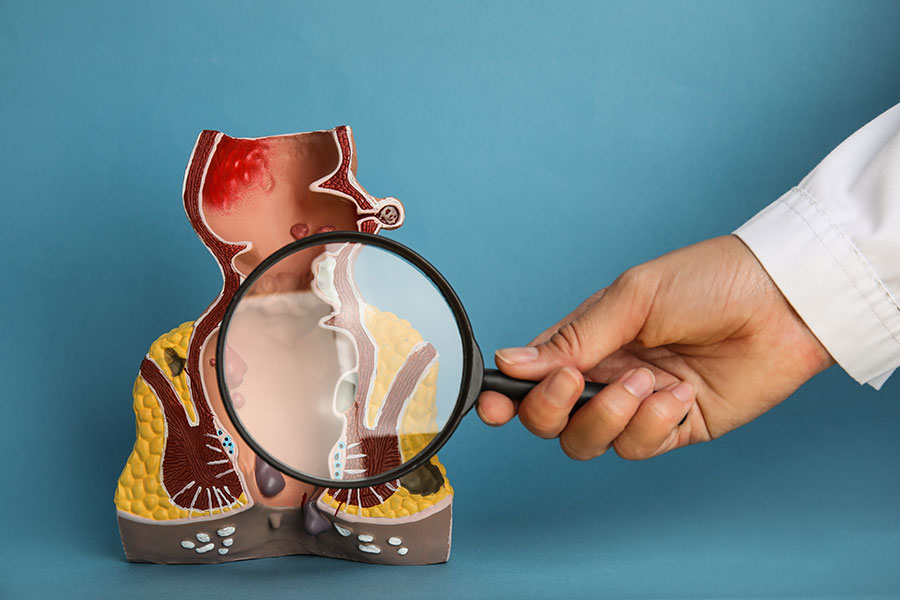Some people live with a hernia for months or even years, managing the discomfort but putting off treatment. The problem is, hernias don’t heal on their own—and waiting often means a higher risk of pain, complications and a more complex hernia surgery down the road.
If the idea of surgery makes you hesitant, remember that seeing a hernia specialist in Singapore early gives you more control: you can plan your repair before it becomes an emergency and go for safer options.
What Is a Hernia?
A hernia develops because the muscle or connective tissue (fascia) that normally keeps organs in place becomes weakened or strained. When pressure builds inside the abdomen—such as from heavy lifting, chronic coughing, obesity, or even straining during bowel movements—it can force part of an organ, fat, or intestine to push through that weak spot.
A hernia usually appears as a lump or bulge under the skin, often in the groin or abdominal area, that may:
- Become more noticeable when you stand, cough, bend, or strain.
- Reduce or disappear when you lie down or gently push it back in (in some cases).
- Cause discomfort, heaviness, or pain, especially after physical activity.
Common types of hernias include:
- Inguinal hernia – occurs in the groin when part of the intestine pushes through a weak spot in the abdominal wall.
- Femoral hernia – appears lower in the groin or upper thigh, more common in women.
- Umbilical hernia – develops near the belly button, often seen in infants but can also affect adults.
- Hiatal hernia – happens when part of the stomach pushes up into the chest through the diaphragm.
- Incisional hernia – forms at the site of a previous surgical incision in the abdomen.
- Epigastric hernia – occurs in the upper abdomen between the belly button and chest.
Can You Live with a Hernia Without Treatment?
In some cases, yes—but doing so comes with limitations.
Minor hernias may remain stable for a time without severe symptoms. Conservative measures like avoiding heavy lifting, wearing supportive belts, or focusing on weight control may reduce discomfort temporarily.
However, these are not permanent solutions and do not repair the defect. Over time, untreated hernias usually worsen and cause more pain and discomfort.
Risks of Leaving a Hernia Untreated
Delaying treatment increases the chance of risks and complications, including:
- Strangulation: The herniated tissue gets trapped, and the blood supply is cut off—this is an emergency.
- Obstruction: Part of your intestine may get blocked, causing pain, vomiting, or constipation.
- Growth: The hernia can increase in size, making surgery more complex and recovery longer.
- Tissue damage: Organs or fatty tissues squeezed through the weakened area may suffer damage.
Myths About Hernia Healing Without Surgery
There are many misleading beliefs around hernias and healing, causing patients to delay treatment from a medical professional.
Here are some common myths debunked:
- Myth: It will go away on its own.
Reality: Hernias do not self-repair; without intervention, the defect typically worsens.
- Myth: Only big hernias need treatment.
Reality: Even small ones can cause serious issues like pain or strangulation.
- Myth: Pain is the only reason to operate.
Reality: Discomfort is just one sign; risks and long-term health impact matter even if pain is mild.
Signs You Need to See a Hernia Specialist in Singapore Immediately
You should seek immediate medical care if you notice the following red flags:
- Severe pain that worsens quickly
- A hernia that becomes red, tender, or discoloured
- Nausea, vomiting, or inability to pass stool or gas
- Sudden swelling of the bulge
These signs may indicate strangulation or bowel obstruction — both medical emergencies.
If you suspect a hernia, seek help early. Schedule an appointment with hernia specialist Dr Bernard Lim in Singapore to avoid complications and regain peace of mind.
Why Early Diagnosis Makes a Difference
In our experience, getting a hernia checked early and receiving a diagnosis generally means:
- A higher chance of less invasive surgery for hernia repair (such as laparoscopic) rather than an emergency operation
- Non-surgical treatment for mild hernias (such as lifestyle modifications or wearing supportive devices) if you have to delay surgery for any reason
- Shorter recovery time and less disruption to your daily life
- More treatment options tailored to your condition, such as the type of mesh, technique, and repair method
- Reduced risk of serious complications such as obstruction or strangulation
- Ongoing monitoring by a specialist to track changes and intervene before complications develop
- Peace of mind knowing exactly what’s going on with your health
Don’t Delay Hernia Treatment
Every untreated hernia follows the same path: it grows larger, more uncomfortable, and eventually requires surgery. The only question is whether you’ll face it in an emergency—or on your own terms.
Schedule a consultation in Singapore with Dr Bernard Lim Specialist Surgery today and get guidance on hernia repair options that suit you. He specialises in minimally invasive techniques and prioritises a holistic approach, factoring in a patient’s lifestyle and medical needs.




